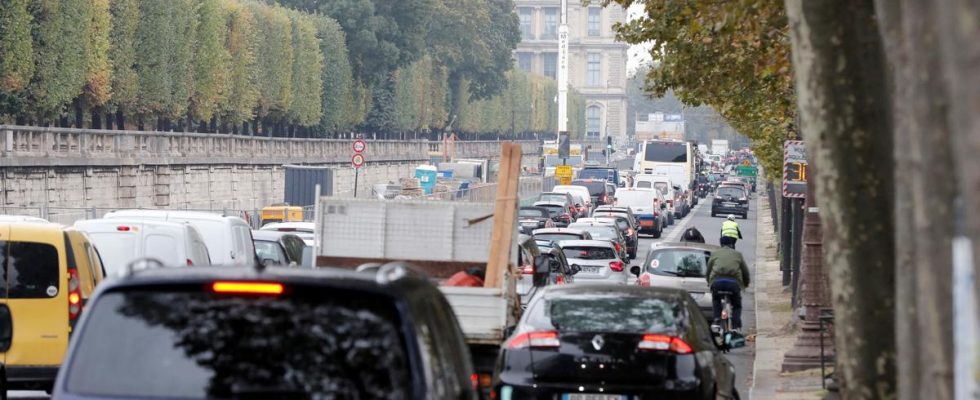In an interview with Parisian, Paris police chief Laurent Nuñez details the system that will apply to motorized vehicles. Exceptions will be required to travel in certain areas in Paris
The Paris 2024 Olympic and Paralympic Games, which will take place from July 26 to August 11 and from August 28 to September 8, will have serious consequences on traffic in the capital and in Île-de-France. Local residents and traders, who live and work near the sites where the events will take place, are the main ones affected. “The principle is the ban on motorized traffic, and the exception, the exemption”declared the Paris police prefect in a interview at Parisian , this Wednesday, November 29. Laurent Nuñez details the contours of the restricted access zones around the Olympic sites and during the opening ceremony.
Concretely, traffic restriction perimeters have been established around the competition zones. These restrictions will not concern “only two or four-wheeled motorized vehicles”, specifies the prefect. Exemptions will be granted to authorized persons. In November, Transport Minister Clément Beaune admitted that traffic plans during the Olympics will be “hardcore”. What is it concretely?
Which areas will be affected by the exemptions?
As close as possible to the Olympic sites, red zones, where traffic will be prohibited, unless exempted, will be set up. The prefecture justifies this drastic measure “due to the significant pedestrian flow and the risk of car-ramming attacks or disruptions”. These areas are located, for example, at the Parc des Princes, the Athletes’ Village in Saint-Denis, the Accor Arena or the Stade Yves-du-Manoir in Colombes (Hauts-de-Seine).
In second zones, called blue, traffic will not be prohibited but regulated to avoid “transit traffic”. Only people who live, work or want to go to a business or restaurant in this area will be able to access it by car.
These perimeters will be in place for the duration of the competition, except for areas where temporary sites will be installed, such as at Concorde, Les Invalides or Trocadéro). In this case, “there are assembly and dismantling phases to be planned” And “the sites will be closed to traffic shortly before the Games”. Likewise, traffic and access conditions will be stricter on the days when events pass through Paris. “The neutralization time is, however, very short, and largely during weekends”explains the police chief.
Who will be able to obtain an exemption?
In red zones, exemptions will concern “residents who have parking lots, those who visit vulnerable people, emergency and rescue vehicles, recovery vehicles, etc.”, explains the police prefect. Taxis and VTCs should be authorized there “if they drop someone off there and only if they have proof”. As for people who go to the blue perimeter, “they must be able to justify the reason for their trip”.
A list of categories of people who could qualify for exemptions has been established. A consultation to validate it will be carried out until mid-January, “to an audience which will be received in Paris and in the prefectures of the Île-de-France departments hosting Olympic and Paralympic events. We will check that it corresponds to the reality of economic life.”
How to obtain an exemption?
The contenders for the precious sesame will have to, ahead of the Olympic Games, register on a digital platform and provide proof: of address for local residents, others for traders who have deliveries, etc. This platform is expected to open in March. Exemption holders will have a QR code to present during checks for red perimeters.
For people who do not have access to the Internet, the Paris town hall and other municipalities are considering the possibility of obtaining a badge or proof. “Access points will be defined. It is too early to make them public.he concludes.
The opening ceremony puzzle
“It will be more complicated”, admits the police chief bluntly. The area where traffic will be prohibited “will be wide” and the protection perimeter will be put in place several days before July 26. “Vehicle entry will be limited to the strict minimum”.
People who have “something to do” in this area, local residents, tourists whose hotel is located within the red perimeter, or visitors who have a ticket for the ceremony will be able to access it. The same goes for going to the restaurant or bar: “we will have to justify the fact that we fall within the perimeter (…) therefore, there will necessarily be a registration on the platform.” Finally, a person who goes to a friend’s house living in the red zone to observe the opening ceremony from the latter’s balcony or barge will have to register on the platform.
” data-script=”https://static.lefigaro.fr/widget-video/short-ttl/video/index.js” >

